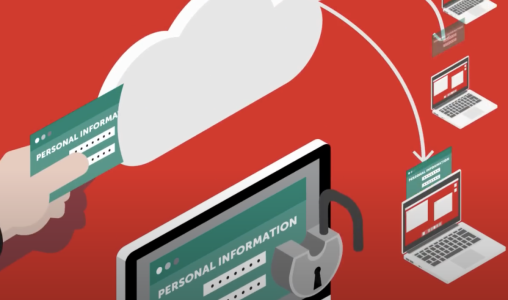You could be owed up to $5,000 from this data breach settlement—here’s how to find out
By
Veronica E.
- Replies 0
If you’ve ever worried about your personal information ending up in the wrong hands, you’re not alone.
In recent years, data breaches have become all too common—and sometimes, they come with unexpected opportunities for compensation.
One such case involves Generations Federal Credit Union, where thousands of Americans may qualify for payments of up to $5,000.
All it takes is some basic documentation to prove your losses.
For those impacted, this settlement could turn a digital headache into financial relief.

In December 2022, Generations Federal Credit Union, based in Texas, experienced a data breach that left sensitive member information exposed.
This included Social Security numbers and financial account details.
While the credit union has not admitted wrongdoing, they agreed to settle a class action lawsuit filed by affected members.
The settlement is designed to compensate individuals for both minor expenses and major financial losses tied to the breach.
Depending on your circumstances, you could receive:
Together, that means eligible members could receive as much as $5,000.
To qualify for reimbursement, you’ll need to provide evidence of your expenses. Examples include:
For extraordinary losses, clear documentation is required to prove the financial impact. Keeping accurate records will help strengthen your claim.
Even if you didn’t lose money, the settlement also includes two years of free, three-bureau credit monitoring and identity theft protection.
This coverage comes with at least $1 million in identity theft insurance.
The credit union has also committed to improving its security practices to prevent similar breaches in the future.
To be eligible, you must:
The deadline to file claims is September 15.
Claims can typically be submitted online through the official settlement website. If you received a notification letter, check it for instructions and links.
This settlement isn’t unique. In 2024, Community Care Alliance in Rhode Island agreed to pay more than $1 million after a breach compromised sensitive patient records.
Like Generations, the organization resolved the lawsuit without admitting fault.
These cases highlight the growing accountability for companies handling personal data—and the real impact on everyday Americans when that data is exposed.
Data breaches are becoming more frequent, but you can take steps to protect your information:
Staying alert to data breaches is no longer optional—it’s part of protecting your financial future.
If you believe you qualify for the Generations settlement, don’t let the deadline slip by without filing a claim.
Even if you didn’t experience direct losses, taking advantage of free credit monitoring and identity theft protection can give you valuable peace of mind.
Read next: Is your medical data safe? Millions may be at risk after major hospital cyberattack

Have you ever received notice that your data was exposed in a breach? Did you file a claim or take advantage of free monitoring services? Share your experience in the comments below—your story could help others in the GrayVine community know what to look out for!
In recent years, data breaches have become all too common—and sometimes, they come with unexpected opportunities for compensation.
One such case involves Generations Federal Credit Union, where thousands of Americans may qualify for payments of up to $5,000.
All it takes is some basic documentation to prove your losses.
For those impacted, this settlement could turn a digital headache into financial relief.

Some Generations Federal Credit Union members may qualify for payments after a 2022 data breach. Image source: YouTube / Kaspersky.
What happened in the Generations breach?
In December 2022, Generations Federal Credit Union, based in Texas, experienced a data breach that left sensitive member information exposed.
This included Social Security numbers and financial account details.
While the credit union has not admitted wrongdoing, they agreed to settle a class action lawsuit filed by affected members.
The settlement is designed to compensate individuals for both minor expenses and major financial losses tied to the breach.
How much can you receive?
Depending on your circumstances, you could receive:
- Up to $500 for everyday expenses, such as bank fees, phone or mailing costs, or travel expenses related to resolving the issue.
- Up to $4,500 for extraordinary losses, such as fraudulent withdrawals, identity theft, or larger financial damages, provided you have supporting documentation.
Together, that means eligible members could receive as much as $5,000.
Also read: You could be owed $5,000 in a major data breach settlement—here’s who qualifies
What you’ll need to file a claim
To qualify for reimbursement, you’ll need to provide evidence of your expenses. Examples include:
- Bank statements showing fraudulent activity or fees.
- Bills for phone calls, postage, or other communication costs.
- Receipts for gas or travel to a bank branch, government office, or police station.
For extraordinary losses, clear documentation is required to prove the financial impact. Keeping accurate records will help strengthen your claim.
Also read: Over 1 million Americans impacted by massive Farmers Insurance breach—your data could be at risk right now
Free protection for all affected members
Even if you didn’t lose money, the settlement also includes two years of free, three-bureau credit monitoring and identity theft protection.
This coverage comes with at least $1 million in identity theft insurance.
The credit union has also committed to improving its security practices to prevent similar breaches in the future.
Also read: Is your personal data safe? LexisNexis breach exposes sensitive info of over 364,000 Americans
Who qualifies?
To be eligible, you must:
- Have received a written notice from Generations Federal Credit Union about the breach.
- Live in the United States.
- Provide documentation of your expenses, if claiming compensation.
Also read: Medicare data breach affects over 100,000—here’s what you need to know now
Deadlines to know
The deadline to file claims is September 15.
Claims can typically be submitted online through the official settlement website. If you received a notification letter, check it for instructions and links.
Also read: A major data breach settlement could put up to $2,000 in your pocket—here’s how to file a claim
Other cases making headlines
This settlement isn’t unique. In 2024, Community Care Alliance in Rhode Island agreed to pay more than $1 million after a breach compromised sensitive patient records.
Like Generations, the organization resolved the lawsuit without admitting fault.
These cases highlight the growing accountability for companies handling personal data—and the real impact on everyday Americans when that data is exposed.
Also read: Drivers, check now—your data could be part of a new security breach
Protecting yourself in the future
Data breaches are becoming more frequent, but you can take steps to protect your information:
- Review bank and credit card statements regularly for unusual activity.
- Use strong, unique passwords across accounts.
- Take advantage of free credit monitoring services offered after breaches.
- Keep documentation of any expenses or losses in case you qualify for future settlements.
Staying alert to data breaches is no longer optional—it’s part of protecting your financial future.
If you believe you qualify for the Generations settlement, don’t let the deadline slip by without filing a claim.
Even if you didn’t experience direct losses, taking advantage of free credit monitoring and identity theft protection can give you valuable peace of mind.
Read next: Is your medical data safe? Millions may be at risk after major hospital cyberattack
Key Takeaways
- Generations Federal Credit Union agreed to settle a class action lawsuit after a December 2022 data breach exposed sensitive member information.
- Eligible members may claim up to $5,000, including $500 for routine expenses and up to $4,500 for extraordinary losses with proof.
- All affected members qualify for two years of free credit monitoring and identity theft protection, including $1 million in coverage.
- The deadline to file claims is September 15, and similar settlements—like the Community Care Alliance breach—show how companies are increasingly held accountable for data security.
Have you ever received notice that your data was exposed in a breach? Did you file a claim or take advantage of free monitoring services? Share your experience in the comments below—your story could help others in the GrayVine community know what to look out for!






